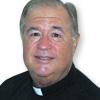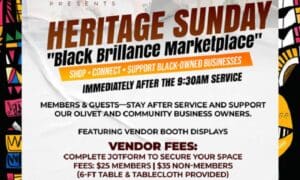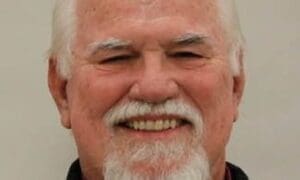Answers to your questions about life, religion and the Bible
Pastors get some of the most interesting questions from people they meet and people in their congregations. Here are a few that I have received in my ministry over the years and via email for this column.
Dear Father Paul: What does the Bible say about cremation? I have been a Christian for about 65 years and I can’t decide whether it matters to God which method I choose. Can you give me scriptures that address this question? I enjoy your column. — B. J.
Dear B. J.: Thank you for your question.
I can find no specific teaching in the Bible either for, or against cremation. History teaches us that the ancient Jews and early Christians did not practice cremation. Cremation was practiced, however, by pagan people from earliest history. Perhaps that fact has something to do with some Christians’ negative feelings about cremation today.
Today, Eastern Orthodox and a few Protestant denominations forbid cremation. In 1997 the Vatican (Roman Catholic Church) agreed to allow a funeral Mass with cremated remains present, although the practice is still discouraged by some bishops and priests. Islam does not permit cremation under any circumstances, while it is widely practiced in the Hindu religion.
Christians who object to cremation often argue the New Testament concept that, at a date in the future, Christ will return to earth and that, at that time, the bodies of those who have died in Christ will be resurrected and reunited with their souls and spirits. This teaching says that it would simply be impossible for a body totally destroyed by fire to be resurrected. I Corinthians 15:1; 42-44 and I Thessalonians 4:16 are often used by adherents to this belief.
Those Christians who consider cremation acceptable, on the other hand, argue that even though a body is completely destroyed by cremation, there is no reason why an all powerful God cannot fully restore and then resurrect that person’s body. After all … he is God. Bodies buried in graves eventually return to dust anyway they point out. Cremation simply hurries this natural process along.
For many, a permanent “burial site” and marker are of high importance. This is entirely possible with cremated remains as it also is with remains buried in a casket. There is no question that cremation is growing in comparison with a casket burial. I imagine that a lot of the recent growth in cremation has to do with the significant cost savings that cremation provides.
Having said all of this, it is important to note that some people have very strong feelings about how they want to be laid to rest. Some people strongly prefer burial, while others strongly prefer cremation. It is a personal choice, and for that reason it is important for all of us to make our wishes known in advance.
Dear Father Paul: My pastor said in a sermon recently that, “pride is the number one sin.” So what is so wrong with being proud? I’m proud about a lot of things. — Jim.
Dear Jim: First, I’ve never been one to “rank sins” per se … like a number 10 sin being “worse” than a number 4 sin, etc. To God, sin is sin, and, while there are many good definitions for sin, to me, sin is basically choosing to go one’s own way … without God. The sinner isn’t necessarily a bad person. Not at all. Many sinners are truly wonderful people. The Bible doesn’t say they are bad. It says they are “lost sheep” who have wandered off … chosen to go their own way, without God, and separated themselves from the (Good) Shepherd, Christ. All sinners need to do is to allow themselves to be “found” by the Shepherd. Simple as that.
Second, we can be “proud” … i.e. proud of our children or grandchildren, or proud of our college football team … without being “prideful.” The minute we become “prideful,” (”I don’t need God, I can handle everything by myself, thank you”) we have committed the sin of pride, which is indeed a big deal to God.
Do you have a question? Email it to me at [email protected] and I will try to answer your question in the paper.
————————
Father Paul Massey is pastor of Church of the Holy Cross Charismatic Episcopal Church in Fayetteville, Georgia. Church of the Holy Cross is a Spirit-filled, sacramental / liturgical congregation where Jesus Is Lord. You are cordially invited to worship with us this coming Sunday. More information on the church, worship times, directions and pod-casts of Father Paul’s Sunday messages are at www.holycrosschurch.wordpress.com.











Leave a Comment
You must be logged in to post a comment.